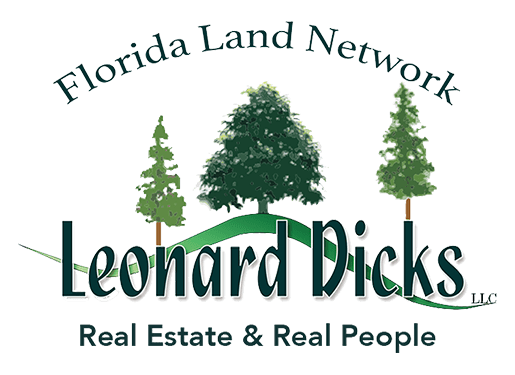
Starting a homestead in Florida is an exciting opportunity to create a self-sufficient, sustainable lifestyle. Florida’s climate, soil, and natural resources offer unique advantages for homesteading, allowing you to grow food, raise animals, and build a thriving, eco-friendly property. Here’s a comprehensive guide to everything you need to know to begin your homesteading journey in Florida.
Choosing the Right Location
Selecting the right land is crucial to creating a successful homestead. Florida’s diverse landscapes offer various options, so consider these factors when choosing your property:
- Soil Quality: North Florida’s soils tend to be more fertile and suitable for agriculture compared to sandy soils in Central and South Florida. Before purchasing, you can conduct a soil test to evaluate fertility, pH levels, and other factors important for crop growth. The Natural Resources Conservation Service (NRCS) offers free soil surveys and testing information.
- Climate: North Florida has a more temperate climate, with mild winters that allow for year-round farming, while Central and South Florida are warmer and may experience more intense heat and humidity. Depending on the types of crops and animals you wish to raise, consider the climate that will support them best.
- Water Access: Reliable water sources are essential for any homestead. Look for properties with wells, access to natural bodies of water, or high rainfall that can support rainwater harvesting. For well installation and regulations, consult the Florida Department of Environmental Protection (DEP).
- Zoning and Permits: Agricultural zoning is generally the most flexible for homesteading, allowing for farming, animal husbandry, and other uses. The Florida Department of Economic Opportunity (DEO) can provide information on zoning codes and regulations specific to your intended land use.
Planning Your Homestead Layout
A well-organized layout is essential for a functional homestead. Consider dividing your land into distinct areas to maximize productivity and ease of access:
- Garden and Crop Areas: Choose a sunny spot with good drainage for your vegetable gardens and orchards. Crop rotation, companion planting, and raised beds can all help enhance soil fertility and reduce pest issues.
- Animal Housing and Pastures: Animals such as chickens, goats, or cattle require secure housing and pastures for grazing. Establish rotational grazing practices to maintain pasture health, and ensure animal shelters are protected from Florida’s hot sun and occasional storms.
- Water Collection and Irrigation: Set up a rainwater harvesting system to supplement your irrigation needs, particularly if you live in a region with high rainfall. Rain barrels, drip irrigation systems, and pond storage can all be effective water management tools.
- Storage and Processing Areas: You’ll need space for storing tools, feed, and harvested produce, as well as processing areas for canning, drying, or butchering. Having dedicated areas for these activities helps streamline your workflow and keeps the homestead organized.
Building Essential Infrastructure
Establishing the right infrastructure will support your homesteading efforts and make day-to-day activities more efficient.
- Water System: Reliable access to water is a must. Many homesteads in Florida rely on well water, rainwater harvesting, or even nearby ponds for irrigation. The Florida DEP provides guidelines on well construction and water use permits to ensure you meet legal requirements.
- Energy Systems: For off-grid homesteading, solar energy is a popular choice due to Florida’s abundant sunshine. Installing a solar array can reduce reliance on the electrical grid and cut down on utility costs. For more extensive energy needs, consider adding a backup generator or wind turbine.
- Fencing and Security: Fencing is essential to protect crops from wildlife and to contain animals. Look into durable materials that can withstand Florida’s weather and won’t rust or decay quickly. Fencing regulations may vary, so check local guidelines for height and material requirements.
- Storage Buildings: Sheds, barns, and other outbuildings provide essential storage space for equipment, animal feed, and harvested produce. If possible, plan for separate storage for garden tools, animal supplies, and processing equipment to keep everything organized and easily accessible.
Selecting and Growing Crops
Florida’s climate allows for a wide range of crops, making it ideal for year-round gardening. However, selecting the right crops for your region and managing soil health are key to success.
Crop Selection
- Warm-Season Crops: These crops thrive in Florida’s hot, humid conditions. Consider growing tomatoes, peppers, eggplant, cucumbers, melons, and beans during the warmer months.
- Cool-Season Crops: Florida’s mild winters support crops like lettuce, spinach, kale, broccoli, and carrots. Many of these crops can be planted in fall for winter harvests.
- Perennial Crops: Fruit trees, berry bushes, and other perennials offer consistent harvests and require less maintenance over time. Popular options include citrus trees, blueberries, and figs.
The University of Florida Institute of Food and Agricultural Sciences (UF/IFAS) offers planting guides for each region of Florida, helping you determine the best planting times and crop varieties.
Soil Management
Soil health is vital for successful crop production. Here are some best practices:
- Composting: Composting organic waste creates nutrient-rich soil amendments. Add compost to your garden beds to improve soil structure and fertility.
- Cover Cropping: Planting cover crops like clover, rye, or alfalfa during off-seasons can improve soil health by adding nutrients and preventing erosion.
- Mulching: Mulch helps retain moisture, regulate soil temperature, and suppress weeds. Use natural materials like straw, wood chips, or leaves to protect your plants.
Raising Animals on Your Homestead
Animals play an essential role in many homesteads, providing food, manure for composting, and pest control. Here’s an overview of some common livestock options:
- Chickens: Chickens are excellent for eggs and can help control pests in the garden. They need a secure coop and access to fresh water, shade, and a dust-bathing area.
- Goats: Goats provide milk and can also help clear brush and weeds. They require sturdy fencing and regular veterinary care, especially for common issues like parasites.
- Cattle: Cattle can supply milk or meat but need ample grazing space, regular pasture rotation, and shelter from the heat.
- Rabbits and Bees: Rabbits are low-maintenance and provide meat and manure for compost, while bees support pollination and produce honey. Both require specific housing but can be highly beneficial to a homestead.
The Florida Department of Agriculture and Consumer Services (FDACS) provides guidelines on raising livestock, including health regulations and animal welfare standards.
Managing Water and Irrigation
Efficient water management is essential, particularly in Florida’s dry seasons. Consider these strategies for managing water on your homestead:
- Rainwater Harvesting: Collecting rainwater can supplement your water supply, especially for gardens. Rain barrels and cisterns are effective for storing rainwater, which can be filtered and used for irrigation.
- Drip Irrigation Systems: Drip irrigation conserves water by delivering it directly to plant roots. This system is ideal for Florida’s hot climate, as it reduces evaporation and keeps plants hydrated.
- Pond and Aquaponics Systems: A pond can provide water storage, a habitat for fish, and water for irrigation. Aquaponics systems, which combine fish farming and hydroponics, are also popular in homesteading for producing both fish and vegetables.
Sustainable Practices for Long-Term Success
Homesteading is rooted in sustainability, and incorporating eco-friendly practices can make your homestead more resilient.
- Composting and Waste Management: Compost kitchen scraps, yard waste, and animal manure to create organic fertilizers. Composting reduces waste and improves soil fertility, supporting healthy crop growth.
- Renewable Energy Use: Solar panels, wind turbines, and other renewable energy sources provide power for your homestead while reducing reliance on the grid.
- Integrated Pest Management (IPM): Use natural pest control methods like beneficial insects, crop rotation, and companion planting to manage pests without harmful chemicals.
Getting Started with Permits and Legal Considerations
Florida has specific regulations for homesteaders, so it’s important to understand the legal aspects:
- Agricultural Exemptions: Florida offers tax breaks for agricultural land use, which can reduce property taxes on homesteads that meet certain criteria. Contact the Florida Department of Revenue for more information on applying for an agricultural exemption.
- Zoning and Land Use Permits: Check local zoning laws to confirm that your land is approved for agricultural or homestead use. Zoning codes vary by county, so consulting with the local zoning office is essential to ensure compliance.
- Animal and Food Regulations: Homesteads that produce food for sale may need permits or inspections from the Florida Department of Agriculture and Consumer Services (FDACS), especially if selling dairy, meat, or eggs.
Starting a homestead in Florida is an enriching endeavor that combines sustainable living with independence. By planning carefully, building essential infrastructure, and choosing crops and animals suited to Florida’s environment, you can create a thriving, self-sufficient homestead.
Are You Buying a Home or Land for Sale in Lake City?
If you’re moving to Lake City, we can help you find the perfect place to live. Call us at 386-243-0124 to tell us what you want from your home and we will begin searching right away.
Check these out:
- Paved road frontage for sale in Columbia County
- Non-deed-restricted land for sale in Columbia County
- Wooded oak tree land for sale in Columbia County
- Land-for-land home combo in Lake City
- Waterfront residential in Lake City
- Waterfront land in Columbia County
- Bank-owned homes and foreclosure in Columbia County
- Short sales in Columbia County



